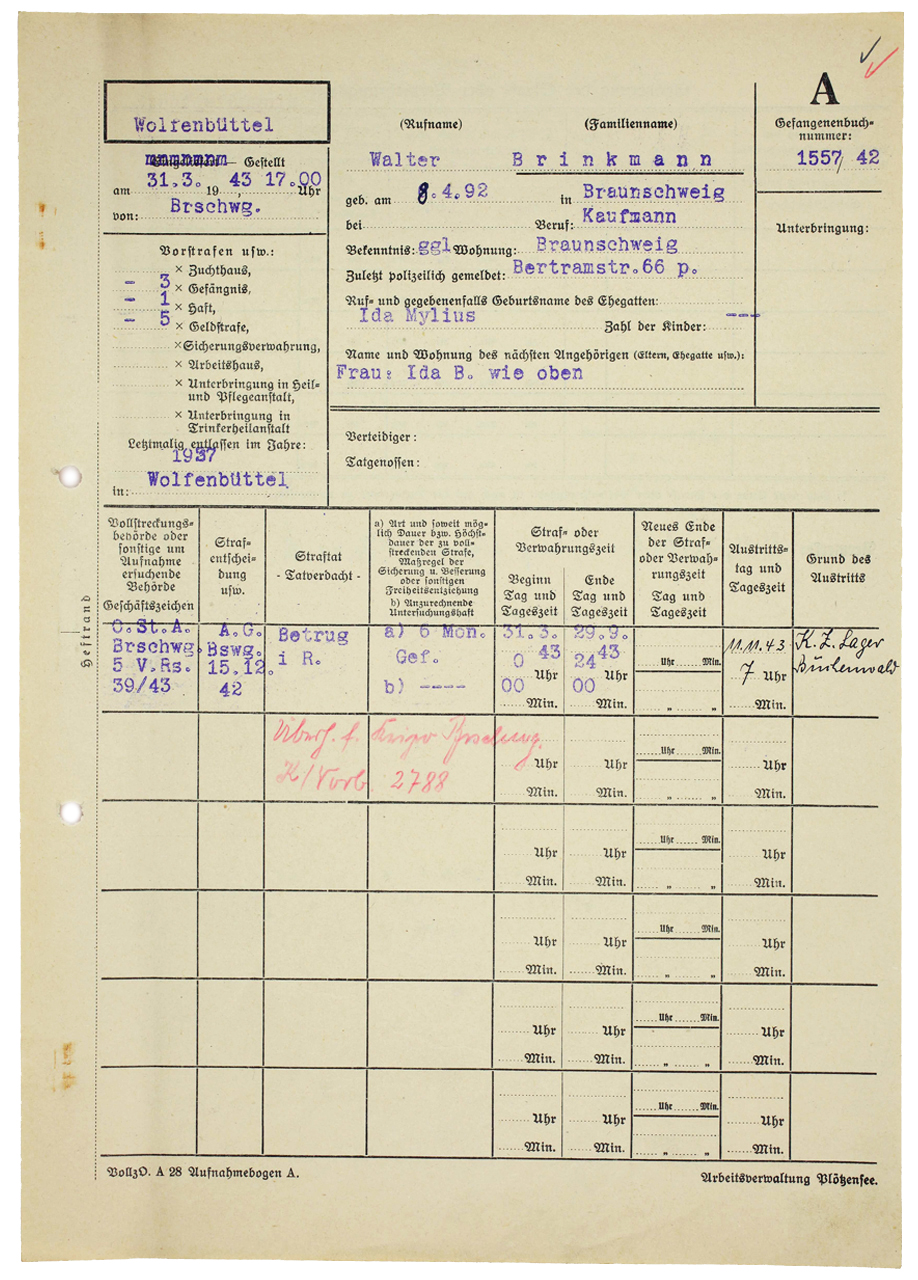#otd1945.04.30
Stigma “Professional Criminal”
On 30 April 1945, the liberated concentration camp inmate Walter Brinkmann returned home to the city of Braunschweig. The criminal police had committed him to the Buchenwald concentration camp in November 1943 for several petty criminal offences. The Buchenwald SS had registered him as a “professional criminal” and transferred him to Dora a short time later. After a death march in April 1945, he had been liberated by British troops in Bergen-Belsen.
In the 1950s, Walter Brinkmann applied for compensation for the time he had spent in the various concentration camps. As a “professional criminal”, however, he was denied recognition as a victim of National Socialism, and his applications for compensation for wrongful imprisonment were rejected.
Compensation was awarded only to inmates who had been persecuted for political opposition or “reasons of race, faith or ideology”. Those stigmatized as “professional criminals” accordingly did not qualify. It was not until 2020 that the German federal parliament recognized them as victims of Nazi persecution.
Source: Bundesentschädigungsgesetz zur Entschädigung für Opfer der nationalsozialistischen Verfolgung (BEG; Federal Law for the Compensation of Victims of Nazi Persecution), 1953.
Reference: Dagmar Lieske, Unbequeme Opfer? “Berufsverbrecher” als Häftlinge im KZ Sachsenhausen, Berlin 2016.

